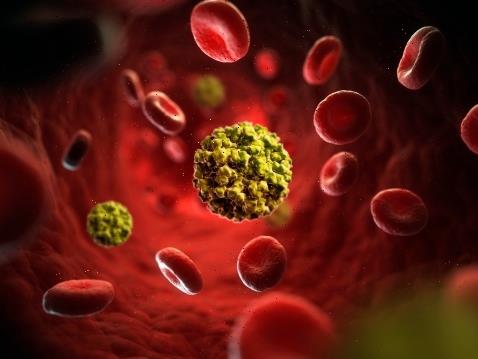NOROVIRUS is a highly-infectious bug often referred to as the "winter vomiting bug".
But although most common in the colder months, cases are currently surging across the UK, with outbreaks particularly in childcare settings.
Health chiefs are therefore warning parents particularly to keep an eye out for the symptoms, as schools will start returning this week.
With Covid cases already high across the UK, it means Brits have to be on high alert to another type of sickness.
But what are the symptoms of norovirus and how long does it last? Here’s what you need to know about the unpleasant virus…
What is norovirus?
Norovirus is one of the most common stomach bugs in the UK and is also referred to as “the winter vomiting bug”, although it can affect people all year round.
It is very unpleasant but it usually clears itself up in a few days.
Public Health England (PHE) is concerned as there are far more incidents reported to its experts than would be expected in summer.
Cases started to increase in June and have been “notably higher” in under fives, PHE said.
In July, cases were 43 per cent higher than the average year.
Health bosses said that while young children have mainly been hit by the bug, there has been a rise in infections across all age groups.
Dr Lesley Larkin, surveillance lead for the Gastrointestinal Pathogens Unit at PHE, told the PA news agency: “We have seen increases in norovirus cases as Covid-19 restrictions have eased and people mix more."
What are the symptoms of norovirus?
According to the NHS website, you are likely to have caught norovirus if you experience a sudden sick feeling, projectile vomiting and watery diarrhoea.
The main symptoms are:
- Feeling sick (nausea)
- Diarrhoea
- Being sick (vomiting)
You may also have:
- A high temperature
- A headache
- Aching arms and legs
How long do norovirus symptoms last?
Norovirus symptoms usually start between 12 and 48 hours of being infected with the bug.
Most people will start to feel better in two to three days.
The NHS says: "Stay off school or work until you have not been sick or had diarrhoea for at least 2 days. This is when you're most infectious.
"Do not visit hospitals or care homes during this time."
There are some unfortunate cases in which the virus can linger in the intestines for weeks – or even months.
And you should get advice by ringing 111 if you are still throwing up after two days, or having diarrhoea for more than seven days.
The same goes for children, and it is important to keep out for dehydration signs, especially if this isn't fixed with oral rehydration sachets.
Call 999 if you or your child's sick has blood in it, is green or yellow or looks like ground coffee. Signs like a stiff neck, pain when looking at lights or a sudden severe headache or stomach ache also warrant calling 999, the NHS says.
How does norovirus spread?
The virus easily spreads around public places and is transmitted when a tiny particle of vomit or poo from an infected person gets into someone else’s mouth.
That sounds a bit gross and unlikely but it can happen – in particular when you touch a contaminated surface and then put your hand in your mouth – or if you eat food which has been contaminated.
You can also catch it if you are in close proximity to an infected person and they breathe on you.
How do you get rid of norovirus?
There is no cure but the symptoms do often pass after a couple of days.
If you think you have contracted it contact NHS direct but stay at home, as you won’t be offered any treatment in hospital and you could put others at risk by being there.
You can ease the symptoms by doing a few things:
- Drink plenty of fluids and avoid getting dehydrated
- Take paracetamol to ease aches and pains
- Rest – a lot
- Eat plain foods (if you can manage eating)
- Rehydrate with rehydration salts which you can buy in a sachet
- Adults can take antidiarrhoeal tablets
Norovirus can spread very quickly, so you should wash your hands regularly while you're ill.
Prof Saheer Gharbia, deputy director of PHE's national infection service, said: "As with Covid-19, hand washing is really important to help stop the spread of this bug.
"But remember, unlike for Covid-19 alcohol gels do NOT kill off norovirus so soap and water is best."
Source: Read Full Article


